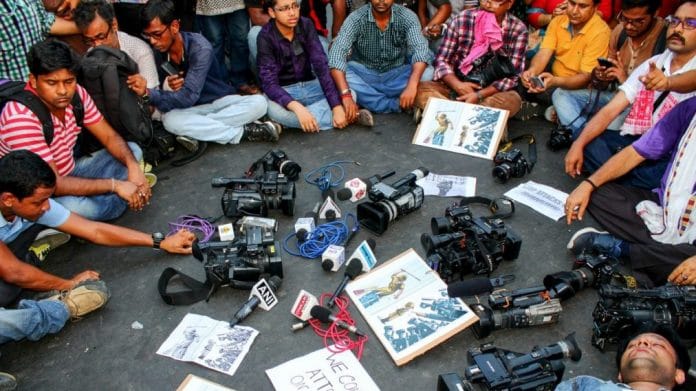Thank you dear subscribers, we are overwhelmed with your response.
Your Turn is a unique section from ThePrint featuring points of view from its subscribers. If you are a subscriber, have a point of view, please send it to us. If not, do subscribe here: https://theprint.in/subscribe/
The independence of media is often spoken of as the backbone of democracy. Yet, in practice, financial pressures shape how freely media can function. Revenue, while essential for survival, frequently becomes a reason for compromise.
Most media outlets depend heavily on advertising. Corporates and governments are often the largest advertisers, which creates a subtle but powerful influence on editorial choices. Stories that could embarrass a sponsor or an advertiser may be softened, delayed, or dropped altogether. In countries like India, government advertising is a crucial source of revenue for newspapers and television channels, and this dependence can hinder their ability to criticise state policies openly. The ownership of media adds another layer of complication. Large business conglomerates with diverse interests often own media houses, and this creates conflicts of interest. Coverage can be shaped to protect the political or economic priorities of the owners. Meanwhile, digital platforms relying on ad clicks and page views are pushed toward sensationalism and clickbait, prioritising attention-grabbing headlines over rigorous, investigative work.
Independent media outlets, by contrast, often struggle financially. Without backing from advertisers or large corporations, they rely on grants, reader subscriptions, or donations. While this model offers greater editorial freedom, sustaining it is difficult in a competitive media market. This financial fragility makes independent outlets vulnerable to closure, limiting the diversity of voices in the public sphere.
Globally, some organisations like The Guardian and ProPublica have tried reader-supported or philanthropic funding models, while in India, some platforms have experimented with subscriptions and donations. These approaches reduce dependence on advertisers, but scaling them up remains a challenge.
Ultimately, money is both a lifeline and a constraint for the media. Without financial independence, true editorial independence is difficult to achieve. For media to remain genuinely free, revenue models must be rethought in ways that empower journalists to serve the public interest rather than the highest bidder.
Should the media be advising the government?
The media should not advise the government in a formal or directive sense, but it plays a crucial role in informing, critiquing, and holding government accountable.
The relationship between the media and the government is vital in any democracy, but it must be carefully balanced. While the media has a powerful influence on public opinion and policy discussions, it should not take on the role of formally advising the government. Doing so would compromise its independence and undermine its role as a watchdog.
The media’s core responsibility is to inform the public, investigate wrongdoing, and hold those in power accountable. These tasks require objectivity and distance from the government. If the media begins advising the government, it risks losing credibility and may avoid critical reporting in order to maintain influence, turning into a mouthpiece rather than a check on power.
However, this does not mean the media has no role in shaping policy. Through editorials, expert analysis, and public debates, the media can influence decision-making indirectly. It helps governments understand public sentiment, highlights pressing social issues, and offers informed criticism that may guide better policy outcomes.
The media should remain independent and avoid direct advisory roles within government. Its influence should come through journalism, not consultancy. A free and critical press is essential to a healthy democracy — and that freedom depends on keeping a clear boundary between media and state.
The media should not directly advise the government because its main job is to stay independent and report the truth. In a democracy, the media acts as a watchdog — it informs the public, questions those in power, and brings attention to important issues. If the media starts advising the government, it might become biased and stop reporting fairly.
However, the media can still influence government decisions. Through news reports, expert opinions, and public discussions, it helps leaders understand what people care about. This way, the media supports democracy without losing its independence. This keeps the media trustworthy and ensures the government works for the people.
Summary
Money and media share a complex, often uneasy relationship. On one hand, money sustains the media—funding journalism, technology, and access, enabling voices to reach the masses. Advertising and sponsorships make large-scale communication possible in ways that pure public funding rarely can. Yet, dependence on money also compromises independence. Media houses may soften criticism of their sponsors, sensationalise to attract revenue, or prioritise profit over truth. In democracies, this creates the risk of information being shaped by a handful of wealthy interests rather than by public need. Ultimately, media must remember its higher responsibility: to inform, not merely to earn. Money should fuel credibility, not corrupt it; otherwise, media ceases to serve society and becomes just another business.
Col KL Viswanathan
These pieces are being published as they have been received – they have not been edited/fact-checked by ThePrint.


